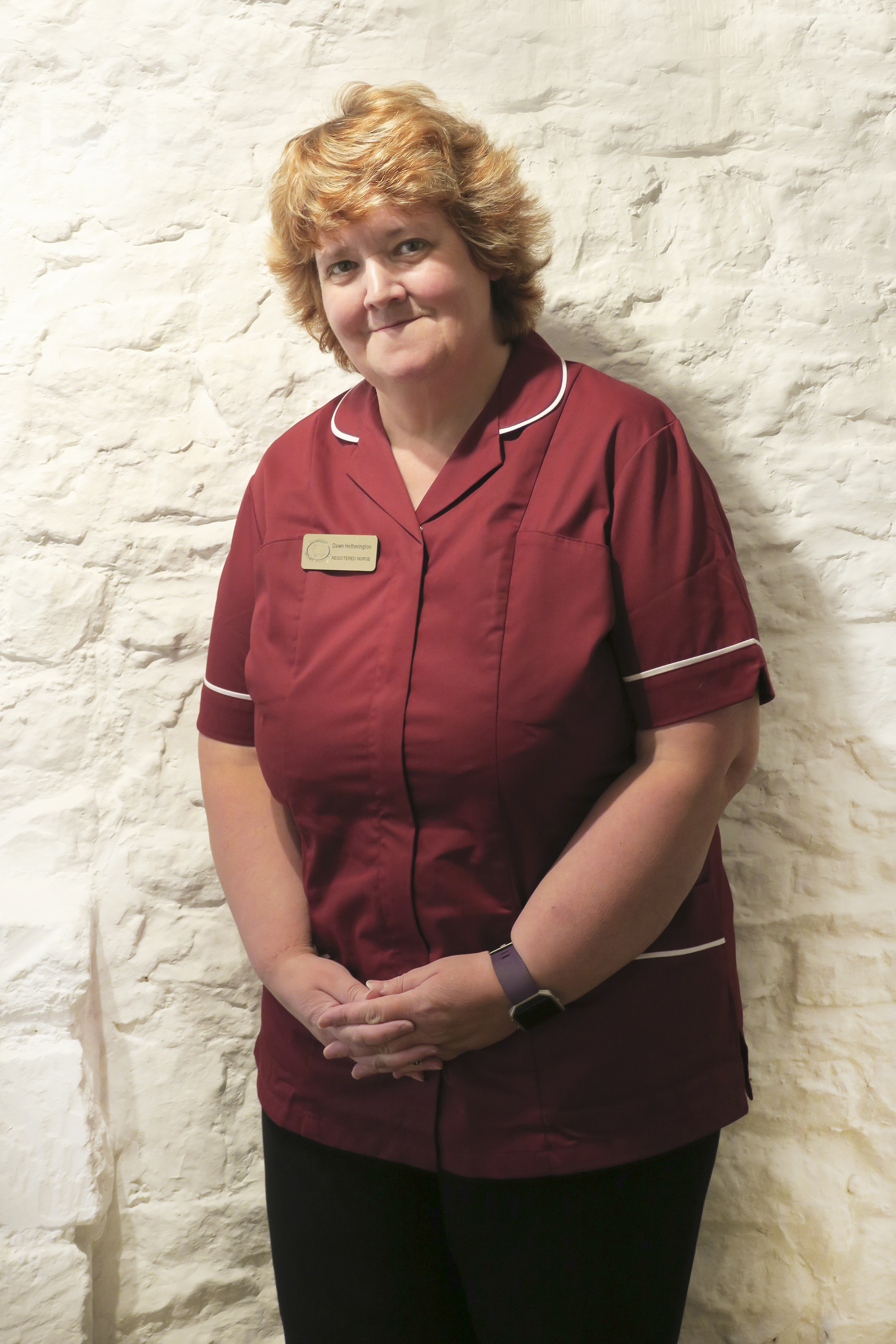Our nurses are there for our patients, day and night, and they’re all committed to providing the highest quality of nursing from the minute they set foot inside a family’s home. One of our nurses explains what it’s like to care for someone – one to one through the night, in their own home.
Dawn has been a nurse for thirty years, and twenty of those have been in palliative care. She’s worked for Campden Home Nursing for four years and says:
I love my job. I see caring for someone who is at the end of their life, as a great privilege. I treat every single patient as I’d like my mum or dad to be treated. I like to think that our care is holistic – we care for people on a physical level, but their emotional wellbeing is also very important.
Nowadays, many patients have made an Advance Care Plans (ACPs) with their healthcare team which can be done when the patient wishes to. The ACPs record treatment and care wishes. They are normally with their nursing notes, so it’s essential that I read these as soon as I can to have an understanding what the patient’s wishes are.
Some patients have signed an Advanced Decision to Refuse Directive (ADRT), which is a written decision which is legally binding which lets other people know about any specific treatments that a he/she doesn’t want to have in certain situations. It means any healthcare professional will know the patient’s wishes if they are ever unable to make decisions themselves. If this is the case, it will be in the patient’s records and will of course, be totally respected. A DNAR/Respect form is often in place in a patient’s home which documents patient’s wishes and not for resuscitation status.
Every shift is different, because every person is different, so on a typical night, before I go to a patient, I will have had a detailed handover, so will have a thorough picture of the patient’s care needs. This includes learning what stage they are at and what medication they are on and whether they are eating and drinking and how they’re coping emotionally. Every relevant medical detail is passed on before I meet the patient and their family.
If I have not met the family before, I introduce myself and ask how the patient has been during the day. They inform me of their care needs overnight and introduce me the patient. The families are almost always pleased to see me and happy for me to take over for the night. Relatives are often exhausted and need a good night’s sleep and they have confidence in Campden Home Nursing nurses as we are very specialised in end of life care. I like to reassure them that their loved one will be well cared for and that they need to relax and try and have a rest for a few hours, in the knowledge that an expert is on hand. I let them know that I’m there for the patient, but also for them. It is very important to involve the family as quite often at night is when the family “open up” and want to talk. I am always there to listen and support.
I’ll then go to see the patient and assess their needs. We have a chat about how they’re feeling and whether they’re comfortable. I’ll help them prepare for bed. Some are happy to settle down and others want to talk for a while. Quite often I will hold their hand to offer comfort. Some patients are very alert. If this is the case and someone wants a pancake at 3am for example, that’s what I’ll do…I’m happy to do whatever I need to keep a patient as comfortable and happy as is possible. If the patient is at end of life it is still very important to communicate and explain what I am doing at all times.
Throughout their care, privacy and dignity is paramount and absolutely everything is done with the patient’s consent, if they have capacity. Or I gain consent from the family if the patient doesn’t have capacity. This is essential as a patient’s choice must be respected.
The most common problem that I come across is that people want to be brave, and quite often they don’t want to report their pain. This is especially true for men. I am therefore used to reading body language and non-verbal communication to try to assess this. I ascertain if they have any discomfort. Often, they do say they have pain and consent to having pain relief. Sometimes I may call a doctor, if I feel that the patient’s medication needs to be re-assessed. There is always a District Nurse on duty if I need help, although this is rare.
In some cases, it’s obvious that the patient is at the end of their life and in this case, I will always alert the family if there are any changes in breathing and other signs that I’ve come to know well i.e. change in colour and breathing. It is important to watch for these signs and communicate these when the time comes. It’s important to prepare the family for what’s coming and comfort them as much as I can.
During the night I assess my patient ensuring they are comfortable. I check syringe drivers are working to time and the site is patent and intact. I check catheters are draining and the tubing intact. Documentation is very important. I document the care I have given throughout the night and any medication I have given is documented clearly on both the prescription sheet and evaluation sheets. If it’s not written down – it means it hasn’t been done! This can be communicated then to other teams during the day. I ensure the patient is settled before I leave. I give a detailed handover to the family before I go.
I believe everyone is entitled to a ‘good death’ and this is what we aim for in our job. This might sound like a strange phrase, but essentially it refers to enabling the best, most comfortable, dignified death a person can have in the context of their clinical diagnosis and symptoms, as well as the specific social, cultural and spiritual circumstances. That’s what I’m committed to providing and it’s an honour to be with a patient and their family to help this happen.”


